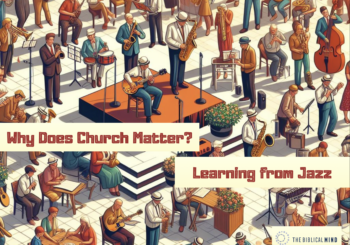From Christian-Hater to CHT Co-Founder—Changed by Reading the Bible
How does the intellectual world of the Bible connect to modern-day issues for the Middle East and Christianity in the region? How can Christians begin reading scripture with respect for not only the New Testament but also the Hebrew Bible?
In this episode, Robert Nicholson joins Dr. Dru Johnson to discuss the Philos Project, the CHT, persecution in the Middle East, and the transformative impact of reading the Hebrew Bible. Robert discusses how reading the Bible first as a narrative helped him move from antagonism towards Christians to being deeply impacted by the message of Scripture and the Church. He then discusses his work with the Philos Project, an organization which he founded and runs. The Philos Project aims to advocate for and educate people about the history, culture, and current events within the Middle East. Robert also talks about Christian persecution in the Middle East, and the role of the CHT in helping people understand the Christian mission in the region.
Shownotes:
- 0:00 How Robert Nicholson became a Christian by reading the Hebrew Bible
- 3:50 Robert discusses The Philos Project and the CHT
- 10:19 The immersive, embodied value of a trip to Israel
- 15:24 How the Philos project helps persecuted Christians in the Middle East
Robert Nicholson is Founder and Executive Director of The Philos Project. He holds a B.A. in Hebrew Studies from Binghamton University, and both a J.D. and M.A. in Middle Eastern history from Syracuse University. A former U.S. Marine and a 2012-13 Tikvah Fellow, Nicholson founded The Philos Project in 2014. His advocacy focuses on spreading the vision of a multi-ethnic and multi-religious Middle East based on freedom and rule of law. Mr. Nicholson serves on the Board of Directors of Passages, and is a publisher of Providence: A Journal of Christianity and American Foreign Policy. His written work has appeared in First Things, The Federalist, The Jerusalem Post, The Hill, and The American Interest, among others.
Credits for the music used in the CHT podcast can be found at: hebraicthought.org/credits






